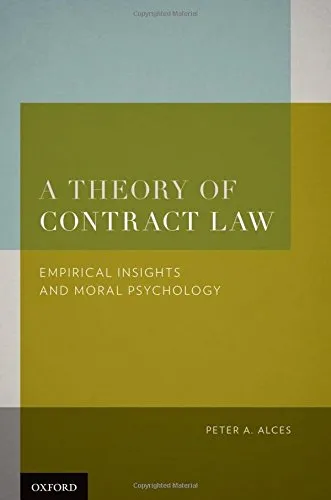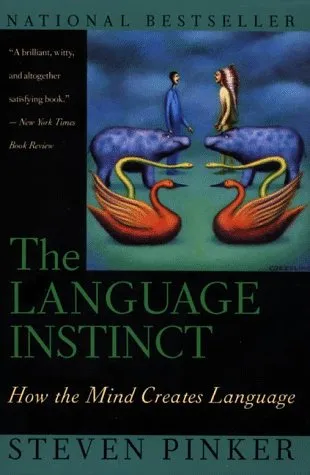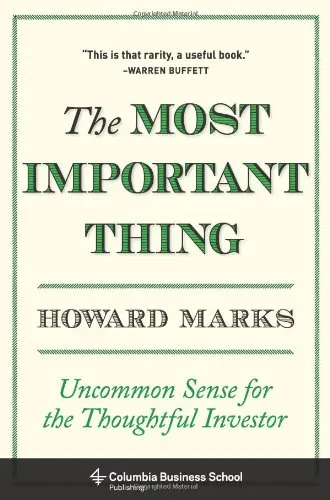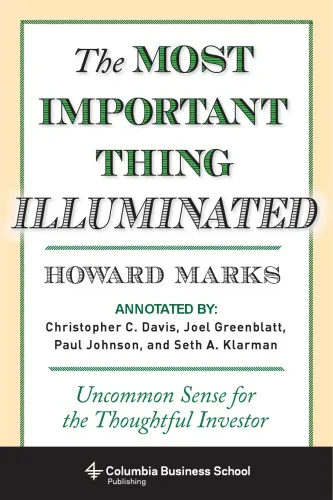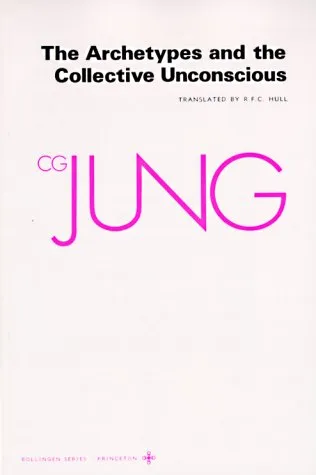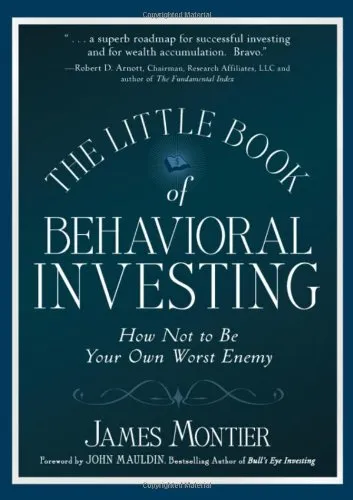A Theory of Contract Law: Empirical Insights and Moral Psychology
4.0
بر اساس نظر کاربران

شما میتونید سوالاتتون در باره کتاب رو از هوش مصنوعیش بعد از ورود بپرسید
هر دانلود یا پرسش از هوش مصنوعی 2 امتیاز لازم دارد، برای بدست آوردن امتیاز رایگان، به صفحه ی راهنمای امتیازات سر بزنید و یک سری کار ارزشمند انجام بدینکتاب های مرتبط:
معرفی کتاب "A Theory of Contract Law: Empirical Insights and Moral Psychology"
کتاب A Theory of Contract Law: Empirical Insights and Moral Psychology نوشته پیتر ای. آلسیس یک تحقیق جامع و عمیق درباره فلسفه حقوق قرارداد با بهرهگیری از روانشناسی اخلاقی و دادههای تجربی است. این اثر به دنبال درک بهتر مفاهیم بنیادی حقوق قرارداد و پیوند آن با اصول اخلاقی و دیدگاههای انسانی است. پیتر آلسیس در این کتاب نگاه تازهای به موضوعاتی چون تعهد، اعتماد و معنای قرارداد در جامعه مدرن ارائه میکند.
خلاصهای از کتاب
کتاب به بررسی چگونگی درک انسانها از Contract Law پرداخته و رابطه پیچیده بین اصول قانونی و رفتارهای انسانی را تحلیل میکند. نویسنده بیان میکند که تحلیل حقوق قرارداد نه تنها به رویکرد اقتصادی و حقوقی نیاز دارد، بلکه بررسی عوامل روانشناختی و اخلاقی نیز در این زمینه حیاتی است. پیتر آلسیس از تحقیقات تجربی و مطالعات بینرشتهای برای ارائه نظریهای استفاده میکند که بر اهمیت عوامل انسانی تمرکز دارد. این نظریه نشان میدهد که باورها، احساسات و زمینههای اجتماعی چگونه میتوانند نحوه تفسیر و اجرای قراردادها را شکل دهند.
این کتاب همچنین تأثیرات تاریخی و فرهنگی بر توسعه حقوق قرارداد را بررسی میکند. آلسیس توضیح میدهد که چگونه سیستمهای مختلف حقوقی در طول زمان به مفاهیم تعهد و توافق تحول بخشیدهاند. او از مفاهیم کلیدی روانشناسی مانند اخلاق، قضاوت انسانی و دیدگاههای هنجاری برای تشکیل یک چهارچوب نظری جدید استفاده میکند.
نکات کلیدی در کتاب
- ارتباط بنیادین بین قانون و اخلاق در تفسیر قراردادها.
- نقش روانشناسی انسانی در تصمیمگیریهای قانونی و قراردادی.
- اهمیت تحقیقات تجربی در فهم حقوق قرارداد.
- چگونگی تأثیر اجتماع و فرهنگ بر توسعه قوانین قراردادی.
- تحلیل انتقادی از نظریههای سنتی حقوق قرارداد و پیشنهاد دیدگاهی نوین.
جملات مشهور از کتاب
"The true essence of Contract Law lies not merely in the promises made but in the moral obligations that individuals perceive in their engagements."
"Understanding how humans think and feel about contracts offers a richer perspective on legal systems."
"Moral Psychology is an indispensable tool in examining why contracts hold the weight they do in society."
چرا این کتاب مهم است؟
کتاب A Theory of Contract Law: Empirical Insights and Moral Psychology به مهمترین پرسشهای مطرح در زمینه حقوق قرارداد پاسخ میدهد: چرا قراردادها برای جامعه مهم هستند؟ چه چیزی باعث میشود مردم به تعهدات قراردادی پایبند باشند؟ این کتاب با ارائه تجزیه و تحلیل دقیق از دیدگاههای اقتصادی، روانشناختی و اخلاقی، ابزارهای لازم برای درک عمیقتر حقوق قرارداد را فراهم میکند.
این اثر نه تنها برای دانشجویان و متخصصین حقوقی، بلکه برای عموم علاقمندان به فلسفه اخلاق و علوم اجتماعی نیز مفید است. نویسنده از مسیرهای غیرمعمول استقبال کرده و تلاش کرده تا حقوق قرارداد را به شکلی ژرفتر و قابل درکتر توضیح دهد. اهمیت این کتاب در پیشنهاد راهکارهایی است که میتواند درک ما از قوانین حقوقی را تغییر داده و آن را با نیازهای واقعی و انسانی سازگار کند.
پیتر آلسیس در این کتاب نشان میدهد که برای داشتن یک سیستم قانونی عادلانه و مؤثر، نیاز به تحلیل نه تنها از منظر قانون بلکه از دیدگاه انسانشناسی و روانشناسی داریم. این رویکرد باعث میشود تا این کتاب به یکی از تاثیرگذارترین آثار در زمینه حقوق قرارداد تبدیل شود.
Introduction to "A Theory of Contract Law: Empirical Insights and Moral Psychology"
"A Theory of Contract Law: Empirical Insights and Moral Psychology" presents a groundbreaking exploration of the foundations and practical implications of contract law through an interdisciplinary lens. This book, written by legal scholar Peter A. Alces, delves into how insights drawn from empirical research, behavioral economics, and moral psychology can redefine the principles that guide contracts and their enforcement in modern societies.
Alces challenges traditional perspectives on contract law and emphasizes the importance of understanding human behavior. By combining historical analysis with cutting-edge empirical studies, the book provides a comprehensive framework for rethinking contract law in both theory and practice. It captures a nuanced understanding of the social, moral, and cognitive forces that shape contractual relationships, making it an essential read for legal scholars, practitioners, psychologists, and students who seek to navigate this dynamic field.
Summary of the Book
"A Theory of Contract Law" is structured around the idea that traditional contract doctrines often miss the complex realities of human behavior. The book examines how people interpret, negotiate, and adhere to contractual obligations, shedding light on the ways in which moral intuition, social conditioning, and psychological biases influence decision-making.
Key themes of the book include the psychological motivations behind creating and fulfilling agreements, the limitations of purely economic models of contract law, and the role of fairness and trust in contract enforcement. Alces supports his arguments by analyzing case studies, empirical data, and philosophical theories, offering readers a holistic view of how law intersects with human character and societal norms.
One of the book's major contributions is its critique of existing legal paradigms that prioritize efficiency and predictability over moral considerations. Alces argues instead for a theory of contract law grounded in empathy, ethics, and a realistic understanding of human behavior. In doing so, he bridges the gap between legal theory and the evolving fields of moral psychology and behavioral science.
Key Takeaways
- Contract law cannot be understood solely as a system of rules; it is deeply influenced by human psychology and moral intuition.
- Empirical research demonstrates that fairness and trust play critical roles in contractual relationships, often outweighing concerns of efficiency or profit.
- Traditional legal theories tend to oversimplify human behavior, ignoring complex motivations such as cognitive biases and ethical considerations.
- Reforming contract law requires a more nuanced appreciation of how individuals and groups behave in real-world contexts.
- A sustainable legal framework for contracts must balance practical enforceability with moral legitimacy.
Famous Quotes from the Book
"The essence of contract is moral imagination, the belief that promises should be kept not because they are enforceable but because they are right."
"Empirical insights reveal that the heart of contract law lies not in economic cost-benefit analyses, but in the trust and fairness we consciously, or subconsciously, attach to agreements."
"The law must adapt to the realities of human psychology, not force human behavior into an unrealistic mold of legal abstraction."
Why This Book Matters
In a world where contractual relationships are becoming increasingly complex and integral to social and economic functioning, "A Theory of Contract Law" offers timely insights into the moral and psychological underpinnings of these relationships.
This book matters because it challenges the rigidity of legal formalism and ushers in a more flexible, human-centered approach to understanding contract law. By introducing interdisciplinary perspectives, Peter A. Alces enhances our ability to craft legal systems that both reflect and guide human behavior in ethical and constructive ways.
It is not merely a book for legal theorists; it is a call to reform how contracts are understood, drafted, and enforced to align with the realities of human nature. As automation and globalization increase the complexity of contracts, Alces's insights become even more critical to navigating the moral and psychological dimensions of these agreements.
If you're looking to deepen your understanding of contract law or expand your perspective on the subtle interplay between law and human psychology, this book is an essential addition to your library.
دانلود رایگان مستقیم
شما میتونید سوالاتتون در باره کتاب رو از هوش مصنوعیش بعد از ورود بپرسید
دسترسی به کتابها از طریق پلتفرمهای قانونی و کتابخانههای عمومی نه تنها از حقوق نویسندگان و ناشران حمایت میکند، بلکه به پایداری فرهنگ کتابخوانی نیز کمک میرساند. پیش از دانلود، لحظهای به بررسی این گزینهها فکر کنید.
این کتاب رو در پلتفرم های دیگه ببینید
WorldCat به شما کمک میکنه تا کتاب ها رو در کتابخانه های سراسر دنیا پیدا کنید
امتیازها، نظرات تخصصی و صحبت ها درباره کتاب را در Goodreads ببینید
کتابهای کمیاب یا دست دوم را در AbeBooks پیدا کنید و بخرید
1305
بازدید4.0
امتیاز0
نظر98%
رضایتنظرات:
4.0
بر اساس 0 نظر کاربران
Questions & Answers
Ask questions about this book or help others by answering
No questions yet. Be the first to ask!
